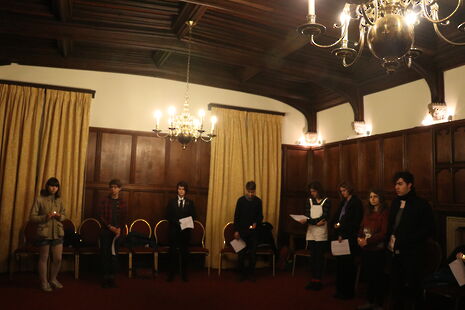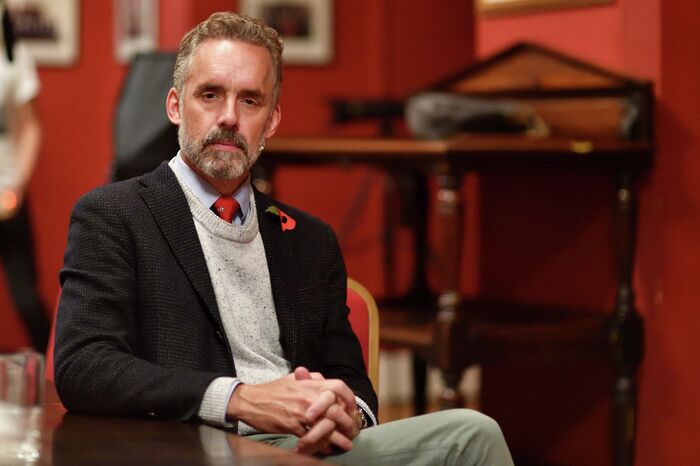Cambridge students come together to mark ‘crucial’ Transgender Day of Remembrance
The day serves to “memorialize those who were killed due to anti-transgender hatred or prejudice”

Content note: This article contains mention of suicide.
On Tuesday, around 30 Cambridge students gathered in the Old Music Room of St John’s College to observe the Transgender Day of Remembrance.
The Transgender Day of Remembrance is observed worldwide on 20th November each year, having begun in 1999 with a vigil organised by Gwendolyn Ann Smith to commemorate the murder of transwoman Rita Hester one year previously.
The day serves to “memorialize those who were killed due to anti-transgender hatred or prejudice”.
Cambridge’s remembrance event was organised by Cici Carey-Stuart, transgender and non-binary representative for the CUSU LGBT+ campaign, and was open to all those who identify as transgender or non-binary, and to any allies wishing show support. The event was originally set to be held in the Memorial Garden in Christ’s Pieces, but was moved the Old Music Room of St John’s College due to bad weather.
There was also a city-wide event at 7pm organised by the Cambridge Diamonds, a local transgender support and social group.
Carey-Stuart described the day as a “crucial part of the year for most trans people, as we remember those we have lost, and as we strive to improve our societies so that this violence is not continued”.
Two poems by Joshua Jennifer Espinoza, a transwoman from California, were read out to the gathered students: ‘Pardon My Gender’ and ‘My First Love’. Attendees were also invited to read out sections of a long list of names, which included all those known to have been killed in the past year due to anti-transgender prejudice and violence.
The event had a sombre feel, with a mixture of sadness and anger in the voices reading out the names. At the same time, there was a sense of solidarity, with attendees exchanging hugs and words of support as the event came to a close. Candlelight for the memorial was provided by LED tea lights.
The Trans Murder Monitoring Project reported 369 murders of trans and non-binary people between 1 October 2017 and 30 September 2018 – 44 more than last year – with almost two-thirds of these taking place in Brazil and Mexico alone. In reading from the list of names, Carey-Stuart chose to omit the ways in which each victim had been killed to make the event more inclusive.
Carey-Stuart addressed the fact that the list does not include suicides of transgender people, “which in a continually transphobic society should count as murder”. Many murders are also believed to go unreported or undiscovered, and a total of 47 people were listed as ‘Unknown Name’.
Carey-Stuart said that the list of names shows “overwhelming evidence of a deadly combination of misogyny, racism and transphobia”, with the majority of victims transwomen and people of colour, according to research conducted by groups such as the National Coalition of Anti-Violence Projects.
Despite these statistics, Carey-Stuart remains optimistic about the progress made by LGBT+ activists this year, and attendees expressed hope that one day this annual list of names will be empty.
In Eastern term earlier this year, CUSU LGBT+ Campaign launched its ‘Why Gender Neutral?’ campaign, which aims to address issues in student life affecting trans and non-binary students, such as gender-neutral toilets and formal dress codes.
 News / Judge Business School advisor resigns over Epstein and Andrew links18 February 2026
News / Judge Business School advisor resigns over Epstein and Andrew links18 February 2026 News / Gov grants £36m to Cambridge supercomputer17 February 2026
News / Gov grants £36m to Cambridge supercomputer17 February 2026 News / CUCA members attend Reform rally in London20 February 2026
News / CUCA members attend Reform rally in London20 February 2026 News / Union speakers condemn ‘hateful’ Katie Hopkins speech14 February 2026
News / Union speakers condemn ‘hateful’ Katie Hopkins speech14 February 2026 News / Hundreds of Cambridge academics demand vote on fate of vet course20 February 2026
News / Hundreds of Cambridge academics demand vote on fate of vet course20 February 2026










